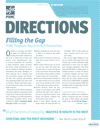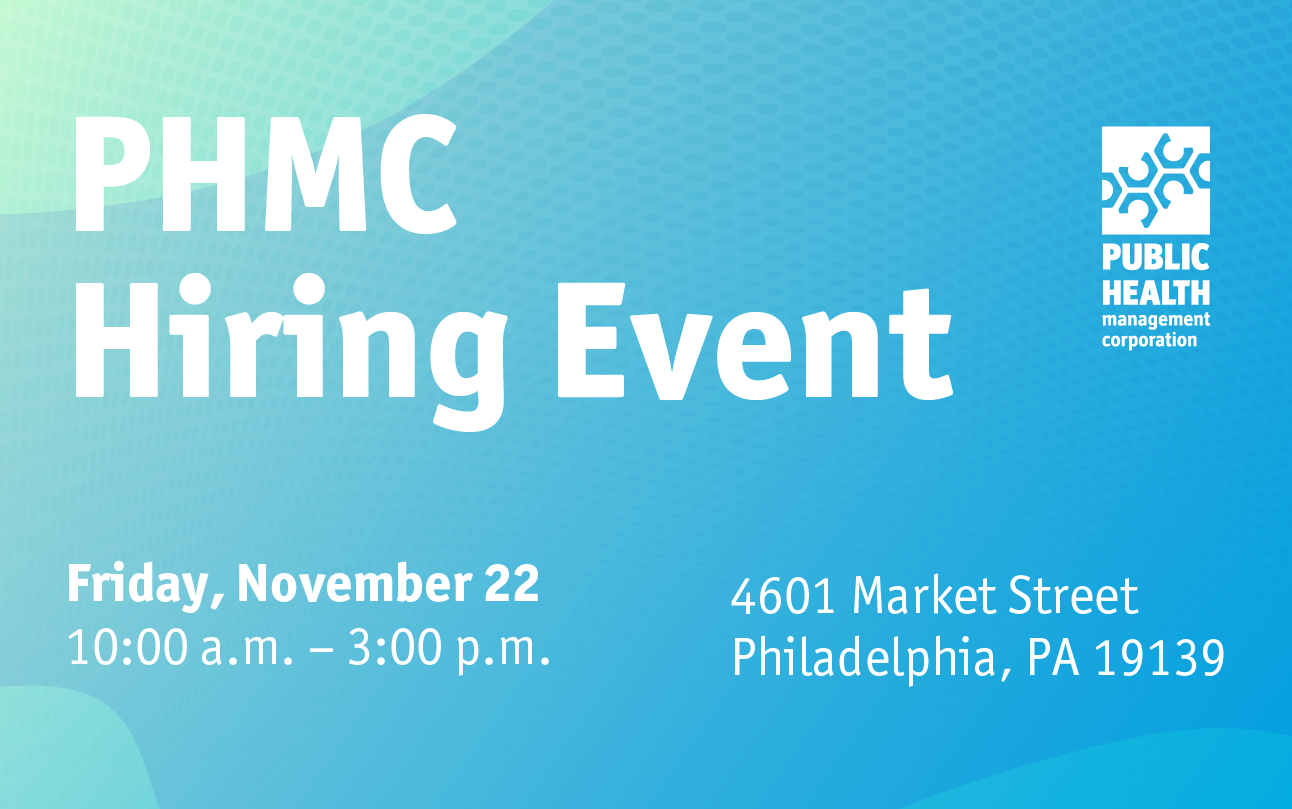 Obstacles to accessing and affording health care, difficulty communicating with health professionals and racial or ethnic bias in health care systems cause disproportionate harm to minority populations and contribute to health disparities. African Americans and women—whose contributions to history we celebrate in February and March respectively—face these challenges. African Americans die at alarming rates from preventable illnesses and injuries, and they suffer mortality and morbidity rates significantly higher than their racial counterparts. Women, particularly minority and underserved women, face similar health inequities.
Obstacles to accessing and affording health care, difficulty communicating with health professionals and racial or ethnic bias in health care systems cause disproportionate harm to minority populations and contribute to health disparities. African Americans and women—whose contributions to history we celebrate in February and March respectively—face these challenges. African Americans die at alarming rates from preventable illnesses and injuries, and they suffer mortality and morbidity rates significantly higher than their racial counterparts. Women, particularly minority and underserved women, face similar health inequities.
Of all the forms of inequality, injustice in health is the most shocking and the most inhumane."— Rev. Martin Luther King Jr.
Research shows that African Americans and women comprise two populations often at high risk for various health-related problems. According to the 2008 Southeastern Pennsylvania Household Health Survey conducted by PHMC’s Community Health Data Base (CHDB), in our region:
- African Americans are more than twice as likely to be uninsured than whites and Asians.
- Poor women are nearly four times more likely than non-poor women to be uninsured.
- Poor women between ages 18 and 64 are over four times more likely than non-poor women to report that they are in fair to poor health. African Americans are more than twice as likely as whites to report being in fair to poor health.
- One in 10 minority women (includes all non-white women) do not have a primary source of care and did not visit a doctor or other health care provider last year.
- African American adults and poor women are more likely to have health conditions that affect their quality of life such as high blood pressure, heart disease and diabetes, compared with whites and non-poor women.
- One in three African American and Latino women are obese and 36% are overweight. 38.3% of poor women are obese, compared with 22.1% of non-poor women.
Since we first began fulfilling our mission as a public health agency more than 36 years ago, we have continually sought opportunities to better serve our region’s most vulnerable populations. From those living with HIV/AIDS, to single parents, to substance abusers, to victims of violence, to homeless teenagers and many more, PHMC serves clients and communities where they live, work, worship and play. In this issue of DIRECTIONS, we highlight just a few of the many programs PHMC and its affiliates offer to women and to the African American community.
Promoting Heart Health and Nutrition
PHMC and its affiliates have established a number of programs that seek to prevent the onset of heart disease and promote healthy living. The Philadelphia Go Red for Women program helps to improve the heart health of African American women by reaching them in their workplaces, in their homes and through their health care providers. A partnership between PHMC affiliates National Nursing Centers Consortium (NNCC) and Health Promotion Council of Southeastern Pennsylvania (HPC), with the American Heart Association and the Pennsylvania Department of Health, the program trains health care providers working in low-income communities on current clinical guidelines for cardiovascular risk assessment and treatment of women. It also educates women about strategies to reduce their risk of cardiovascular disease. NNCC’s Heart and Soul program also focuses on heart-healthy living, providing African American women and youth in West Philadelphia with information on nutrition and exercise. According to recent studies by CHDB, 43% of women in Philadelphia do not exercise for the recommended 30 minutes or more three days per week. Heart and Soul assists them with weight loss and overall health improvement. Through programs like Heart and Soul and Philadelphia Go Red for Women, PHMC continues to fight for women’s heart health.
Supporting Recovery
According to the National Institute on Drug Abuse, more than four million women in America abuse drugs. Founded in 1971 by Clara Baxter Synigal, an African American woman and recovering alcoholic, PHMC affiliate Interim House, Inc. was the first specialized residential treatment program in the Commonwealth of Pennsylvania and one of the first in the nation primarily for women. Today the program annually serves 80 women battling substance abuse and mental health disorders. Employing a trauma-sensitive holistic approach to treating drug and alcohol addiction with a focus on the physical, mental, emotional and spiritual issues surrounding addiction forms the foundation of the Interim House approach. PHMC’s Interim House West, located in Philadelphia’s East Parkside neighborhood, provides similar care and a facility for women in recovery and their children. The program serves up to 20 pregnant and parenting women at any given time, and up to 45 children under the age of 12. In addition to a range of comprehensive services, Interim House West offers an on-site clinical preschool and afterschool program for the children. Through CHANCES, another PHMC program, up to 100 women with children receive outpatient and intensive outpatient substance abuse treatment as well as parenting, adult education and family literacy support. GirlSpace, PHMC’s newest residential treatment program located in West Philadelphia, serves up to 18 girls, ages 14 to 18, with co-occurring mental health and substance abuse disorders.
New Pathways for Women, a federally-funded community-based project in North Philadelphia, reaches active substance-involved African American women at high risk for HIV infection through street outreach and encouragement to enter substance abuse treatment and recovery-oriented programs. Women who enroll in New Pathways for Women can participate in weekly peer support sessions and receive individual pre-treatment counseling, case management, support services, on-site rapid HIV testing and, as needed, referral and accompaniment to confirmatory HIV testing, HIV primary care and case management services, substance abuse treatment, and other support services. PHMC conducts the program in collaboration with the Black Women’s Health Alliance, a Philadelphia-based nonprofit health, education, advocacy and self-help organization.
Stopping the Cycle of Violence
Gun violence continues to plague the United States as a leading cause of death for young African American males. In Philadelphia, nearly a third of the 333 homicides in 2008 involved 15- to 24-year-old African American men killed by firearms. PHMC seeks to stop the cycle of violence in our region as the administrator and manager of Pennsylvania Injury Reporting and Intervention System (PIRIS), a hospital-based injury surveillance and intervention program initiated by the Pennsylvania Department of Health in 2006. PIRIS reaches 15- to 24-year-old gunshot victims treated by and admitted to Temple University Hospital, Albert Einstein Medical Center or the Hospital of the University of Pennsylvania, institutions that collectively account for almost 40 percent of all gun-related hospitalizations in the state. PIRIS provides comprehensive intervention services to help prevent further violence, including victim and family counseling, assistance with health insurance and legal issues, and referrals for education and job training. The program also collects data on firearm-related injuries to aid state and local agencies and community groups as they develop new violence reduction activities and evaluate current efforts. PIRIS has served nearly 200 victims, 94% of them African American, and the number continues to grow.
Empowering and Encouraging Ownership of One’s Health
African American men experience lung disease, heart disease, hypertension, stroke, diabetes and other chronic illnesses in disproportionate numbers. Some experts attribute the disparities in part to the fact that African American men often do not seek necessary medical care for reasons that range from lack of heath insurance to concerns about stigma and experience with insensitivity of physicians. To address such issues and to educate and empower African American men to make informed decisions about their health and take a proactive role in pursuing health care, HPC collaborated with the Philadelphia Department of Health, Thomas Jefferson University Hospital and the Pennsylvania Department of Public Health to form the Stroke Hypertension and Prostate Education Intervention Team (SHAPE IT). SHAPE IT uses educational programs, resources and community activities to help reduce disease and death from prostate cancer and stroke among African American men age 35 and older in Philadelphia. Since it began three years ago, SHAPE IT has reached nearly 7,000 men throughout the Philadelphia region and provided free educational workshops and health screenings. More than 900 men received health screenings, 80% of whom followed up with doctor visits. Men United for a Better Philadelphia, Concerned Black Men and the Philadelphia chapter of the NAACP are among the community organizations that have participated with HPC in these activities.
Closing the Communication Gap
Linguistic, cultural and socioeconomic barriers represent serious threats to the quality of health care and access to services for many populations. To help close the communication gap across all groups, HPC implements solutions such as Health Literacy Program (HLP) and Diversity Dialogue. HLP staff consult with pharmaceutical companies, managed-care organizations, government agencies and medical and social service providers to create easy-to-read, culturally appropriate materials; increase consumer understanding and satisfaction; and enhance community outreach to improve health communications between low income, high-risk consumers and their providers. Diversity Dialogue promotes effective cross-cultural communication through workshops tailored to the needs of client organizations, which include medical institutions, social service agencies and community-based public health organizations in Montgomery County. Diversity Dialogue team members conduct a needs assessment with organization staff and gather demographic data and trends to provide an intimate and relevant diversity dialogue. After the workshop, the organization receives a report that can help it implement recommendations and continue the conversation about cross-cultural communication.
Training the Trainer
Safe Circle, an outreach arm of affiliate Linda Creed, responds to the health disparities that perpetuate late diagnoses and high mortality rates of breast cancer among African American women. Safe Circle provides culturally relevant outreach to the African American community. Through church and community-based organizations, educational facilities, work sites and small groups, Safe Circle offers breast health information, screenings and support services. Using a train-the-trainer model, Safe Circle recruits volunteers from within the African American community and prepares them to deliver breast health education workshops to their peers. These “safe circles” are specially designed to address women’s fears and worries; identify myths and barriers that prevent access to screening and follow-up treatment; increase knowledge and understanding; and encourage participants to act on behalf of their own health.
Societal barriers also can prevent members of lesbian/gay/bisexual/transgender (LGBT) communities from accessing the health care they need. Similar to Safe Circle, Linda Creed’s Rainbow Circle provides inclusive education, information and services to women in the LGBT community to encourage and provide access to optimum breast health care. It also employs the train-the-trainer model to recruit volunteers from within the LGBT community to present breast health information and address concerns in a comfortable, sensitive and understanding environment.





